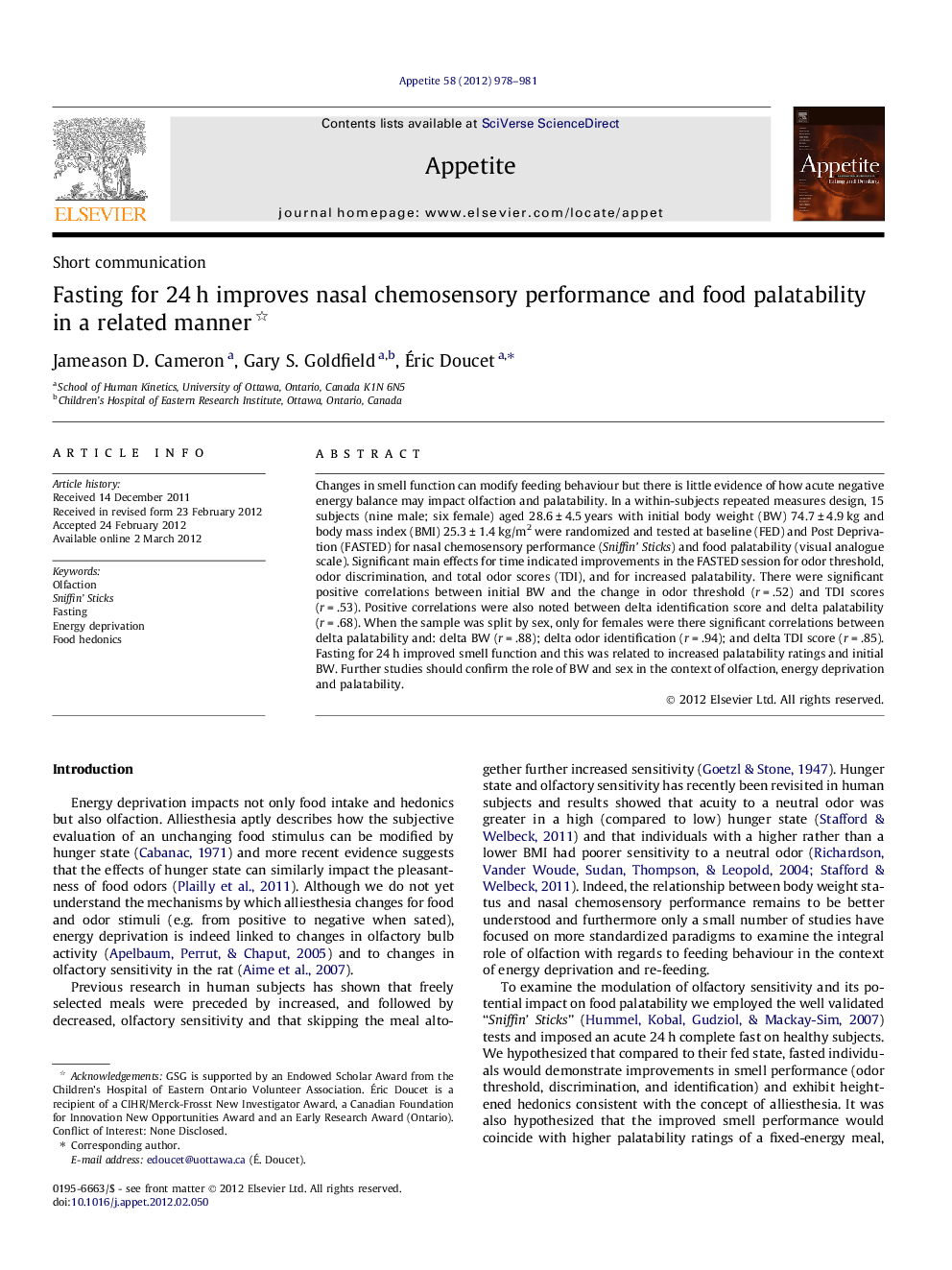| Article ID | Journal | Published Year | Pages | File Type |
|---|---|---|---|---|
| 940412 | Appetite | 2012 | 4 Pages |
Changes in smell function can modify feeding behaviour but there is little evidence of how acute negative energy balance may impact olfaction and palatability. In a within-subjects repeated measures design, 15 subjects (nine male; six female) aged 28.6 ± 4.5 years with initial body weight (BW) 74.7 ± 4.9 kg and body mass index (BMI) 25.3 ± 1.4 kg/m2 were randomized and tested at baseline (FED) and Post Deprivation (FASTED) for nasal chemosensory performance (Sniffin’ Sticks) and food palatability (visual analogue scale). Significant main effects for time indicated improvements in the FASTED session for odor threshold, odor discrimination, and total odor scores (TDI), and for increased palatability. There were significant positive correlations between initial BW and the change in odor threshold (r = .52) and TDI scores (r = .53). Positive correlations were also noted between delta identification score and delta palatability (r = .68). When the sample was split by sex, only for females were there significant correlations between delta palatability and: delta BW (r = .88); delta odor identification (r = .94); and delta TDI score (r = .85). Fasting for 24 h improved smell function and this was related to increased palatability ratings and initial BW. Further studies should confirm the role of BW and sex in the context of olfaction, energy deprivation and palatability.
